Ethiopia
The Ethiopian government has confirmed the release of Andargachew Tsige, a leading opposition member with British citizenship.
Addis Ababa announced a pardon for Tsige and over 500 other prisonsers last Saturday. A keen wait for his release on Monday failed due to what was referred to as misinformation given to his family.
There was elaborate welcome preparations at his residence in the capital Addis Ababa and the United Kingdom embassy is also said to be involved in the release process.
Today’s release has been announced on Twitter by Chief of Staff to Prime Minister Abiy Ahmed. According to Fitsum Arage, the move was: “Finding a path towards an enduring peace is a worthy objective that will be pursued in the spirit of our constitution.”
Finding a path towards an enduring peace is a worthy objective that will be pursued in the spirit of our Constitution. As part of this effort, the gov’t will free today about 500 inmates including Andargachew Tsegie from Kality. #Ethiopia
— Fitsum Arega (@fitsumaregaa) May 29, 2018
He was sentenced to death in absentia in 2009 over his role in the opposition group Ginbot 7. He was subsequently arrested in Yemen five years later and extradited to Ethiopia.
There has been a series of diplomatic and online appeals calling for his release over the period of his incarceration.
Ginbot 7 is classified a terrorist organization by Addis Ababa. Andargachew served as secretary-general of the group which describes itself as a reform movement.
The latest round of release adds to earlier ones that saw government pardon and release hundreds of jailed dissidents. It forms part of the ruling EPRDF’s political and national unity agenda announced in the wake of years of violent unrest.
Ethiopia’s political reforms
Attorney General Berhanu Tsegaye said on Saturday Andargachew has been pardoned “under special circumstances” along with 575 other inmates.
The decisions were made with the “intention of widening political space,” the attorney general told reporters in the capital, Addis Ababa.
Thousands of prisoners, including several senior opposition leaders, have been freed since January having been accused of a variety of charges such as terrorism or incitement to topple the government.
Ethiopia’s anti-government protests were sparked by an urban development plan for Addis Ababa that critics said would trigger land seizures in the surrounding Oromia region. Majority of the protests were centered in the Oromia and Amhara regions.
The protests broadened into rallies over political rights, leading to the resignation of Prime Minister Hailemariam Desalegn in February. He has since been replaced by former army officer Abiy Ahmed.
[ALSO READ:Ethiopia PM, ODF leaders agree to foster national unity](http://www.africanews.com/2018/05/24/ethiopia-pm-odf-leaders-agree-to-foster-national-unity/
)
Photo credit: @AddisStandard



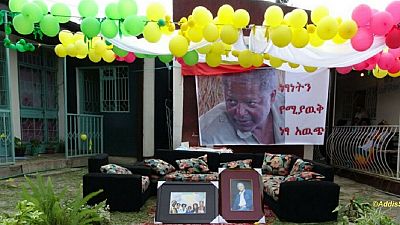

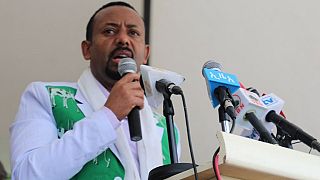
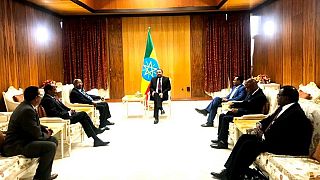
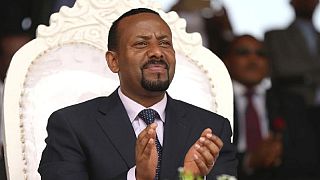
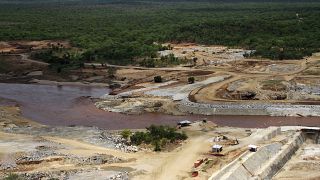
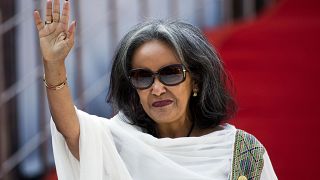




01:16
Ugandan opposition politician kidnapped and jailed, his wife says
01:08
Mozambique: Opposition leader Venancio Mondlane faces legal action
00:58
Somaliland opposition leader wins presidential poll
01:10
Senegal parliamentary elections: Polls open, over 7 million expected to vote
01:03
Senegal’s legislative elections: Prime minister calls for retaliation against “attacks” on supporter
Go to video
Libyan protesters block oil valves demanding release of kidnapped General